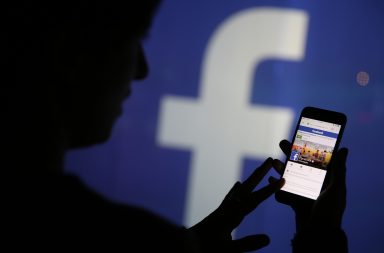How losing my phone in Cuba helped me reconnect with the world
When I decided to travel to Cuba last month, I was fully prepared for a week without the internet. But after losing my phone on the trip, I found out what it’s really like to be “off the grid.”
Cuba introduced public internet connections a little more than a year ago, and logging on still requires trekking to a fairly unreliable outdoor hot spot and buying an hour-long internet pass (ranging from $1 to $4 an hour depending on how good a deal you get). The couple of times I shelled out cash to connect, I used my precious, slow internet minutes to check in with family and friends on WhatsApp, iMessage, and Facebook FB, +0.05% and to Instagram some photos of my trip.
I wasn’t about to complain about dealing with a week of limited internet access that is somewhat of a luxury for many people in Cuba, and was content to spend my time on the trip off the grid with my best friends and enjoy the incredible cities of Havana and Cienfuegos. When I wanted to contact Cuban friends there, I had to call them with a landline or simply drop by their house to find them — a common practice I grew to appreciate. What I didn’t anticipate was that my five-day internet detox would extend to 10 when I lost my phone on the streets of Havana toward the end of my trip.
this is either a nightmare or a welcome vacation from the internet, not sure which.
— Kari Paul (@kari_paul) October 3, 2016
THE MORNING REPORT
Start your workday the right way with the news that matters most.
Your information is 100% secure with us and will never be shared Disclaimer & Privacy Policy
Being relatively paranoid about my online privacy, I use a series of measures to keep my accounts secure, including a password manager and two-step authentication on many of my accounts. For me, this includes a one-time use code sent to my phone by SMS to verify the person logging into my account is actually me. I have this set up for several of my major accounts, and most importantly both of my personal Gmail accounts. While the practice makes my information more secure, it obviously only works when I have access to my phone, which was difficult to replace through my company’s insurance plan while I had no access to internet in a foreign country. Thus, when I returned from my trip I embarked on a four-day adventure in filling out insurance claims and living offline in New York City.
Going to Cuba? Bring lots of cash
Flying to Havana, Cuba anytime soon? Bring lots of cash.Tips for travelers planning a visit to Havana and surrounding cities.
It didn’t have to be this difficult: the passwords for my Gmail GOOG, +0.04% accounts were stored on Lastpass, a password manager I use that would allow me to log into accounts on any device — that is, if I hadn’t forgotten my master password. Having recently changed it to a longer, more secure code, I was working on memorizing the new password and had unwisely saved it to my MacBook desktop on a digital stickie note. This is both dangerous if my computer were compromised and stupid if something drastic were to happen to the device, which occurred days before I left for my trip in the form of an overturned glass of water directly onto my keyboard. Lastpass does offer an account recovery option, which it sends it to your email — you know, the one I was unable to access without Lastpass.
Day 10 without email access and I have probably saved $500 on Amazon Prime impulse buys.
— Kari Paul (@kari_paul) October 5, 2016
Gmail also offers ways to avoid predicaments like mine, with alternative second steps to verify an account, like a security key, authenticator app, backup code, or phone call to a different device. I have now discovered that perhaps the most consequential annoying pop-up I have ignored in recent memory is Gmail’s prompt to “add a backup phone number so Google has another way to send you verification codes in case your main phone is unavailable.” For days I remained in a flimsy security trap of my own making, locked out of Lastpass and all the accounts I had saved to it, and unable to reset any of my passwords without access to my emails.
The effects on my life were immediate and surprisingly sweeping. I entered a lifestyle that, in contrast with my frenetic habits of coping with the usual daily deluge of information, was actually relaxing, and maybe even preferable. Without my phone, I focused on reading books on the subway rather than mindlessly playing Sudoku or flipping through texts and emails. I had more time to go to the gym when I didn’t spend 30 minutes falling down a social media wormhole upon arriving home after work. I watched a full movie at my apartment without checking my phone and was able to better appreciate it without the distraction of constant iMessage notifications. I could only access my work email from my desktop computer at the office, so I truly had to leave work at work and could tune out stressful emails while away.
Without access to my personal email or most social media during the day, I had laser focus on my immediate work tasks, free from the distraction of Gchats and personal emails. Luckily, I was able to turn on an old iPad I had planned to sell and recover my iCloud password through a series of security questions, so I wasn’t completely cut off from the world, though iMessage seemed to only work if I texted friends first. I also was able to remember my Facebook FB, +0.05% password, so I could contact people there — unusual for me as I tend to avoid Facebook Messenger altogether. Between these changes and the awkward, difficult keyboard on my iPad Air, my group chat habit slowed down pretty significantly and I was forced to reach out directly to friends to catch up on their past week in a one-on-one, more meaningful way.
I quickly realized approximately 99% the emails I had missed were completely useless.
But my internet break wasn’t all unplugged bliss. Beyond those two lifelines to the outside world, I still lacked access to countless other services I usually use on a daily basis like Amazon AMZN, -0.76% payment app Venmo, messaging app Slack, WhatsApp, Instagram, my virtual bank account, and of course my email.
Having freelanced before recently starting my current position, I still receive a number of news releases, pitches, and Google news alerts for story ideas on my personal email, and I was convinced I was missing loads of important messages. When my phone finally came in the mail and I could reach my main accounts, I had nearly a couple thousand emails, including 1,035 in my main account and 676 in the other. However, I quickly realized approximately 99% of these were completely useless. How many hours have I wasted in my perpetual quest to reach Inbox Zero on all three of my accounts? Surely I could “select all” and delete at the end of most weeks without the false sense of accomplishment that comes with deleting various alerts and newsletters. Having so little access to the internet made me realize just how many of my daily internet habits were unnecessary (and likely saved me a few bucks on Amazon impulse buys).
My slowed-down week offline allowed me to live more deliberately and completely re-evaluate how I use the internet, if only for a few days. Although I have my phone back, I’ve now deleted most of my social media apps from it, including Instagram, Snapchat, Facebook and Twitter TWTR, -5.12% and I’ve muted all of my text and WhatsApp notifications so I can check my phone only when I remember to. The most immediate lessons I’ve gleaned from my phone debacle are, of course, to keep your master password memorized, or at least in a safe place, and use the backup authentication options suggested by email providers. The other lessons are still sinking in.
Published at Mon, 17 Oct 2016 02:53:41 +0000

 D. Marie
D. Marie 




